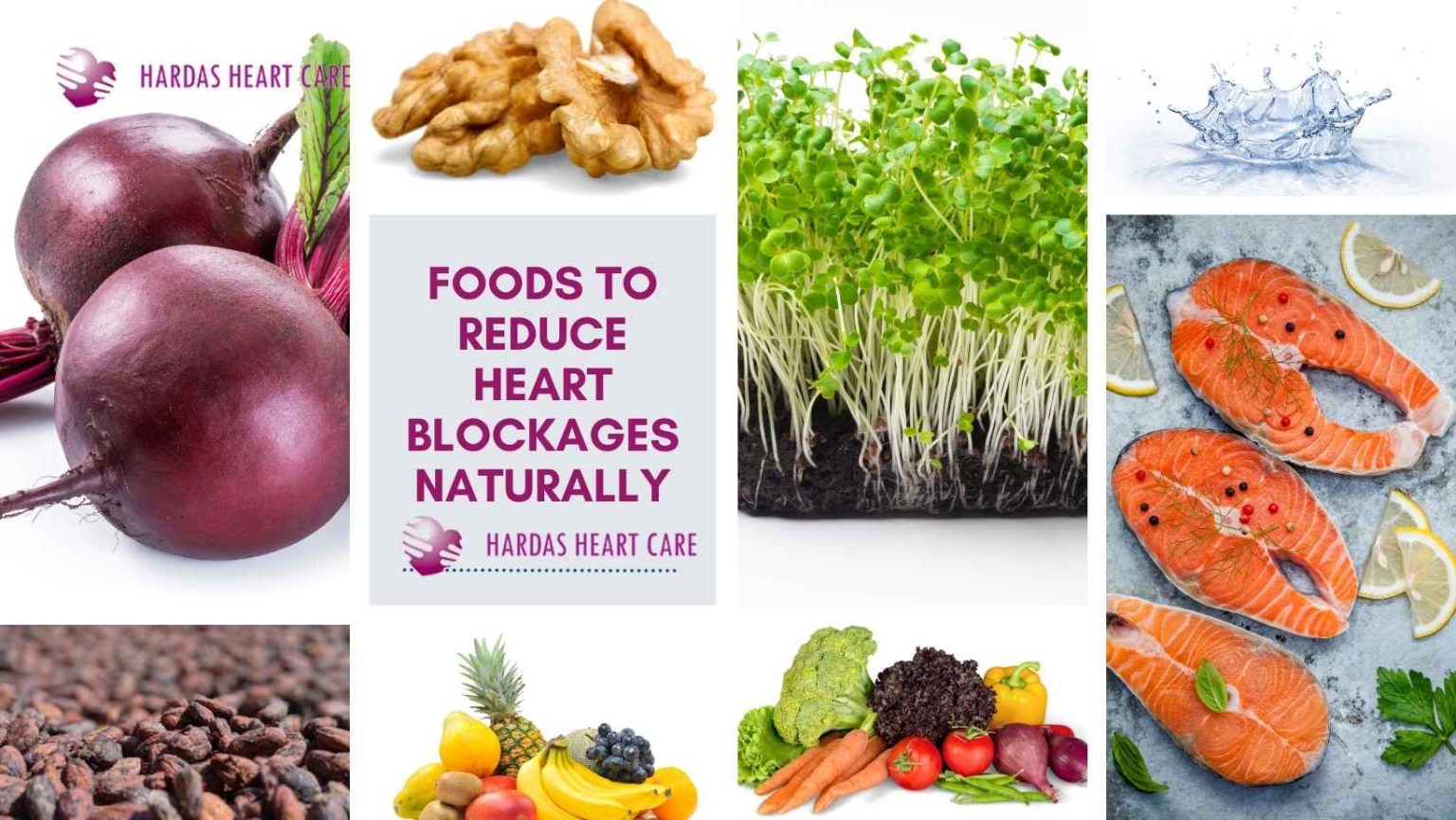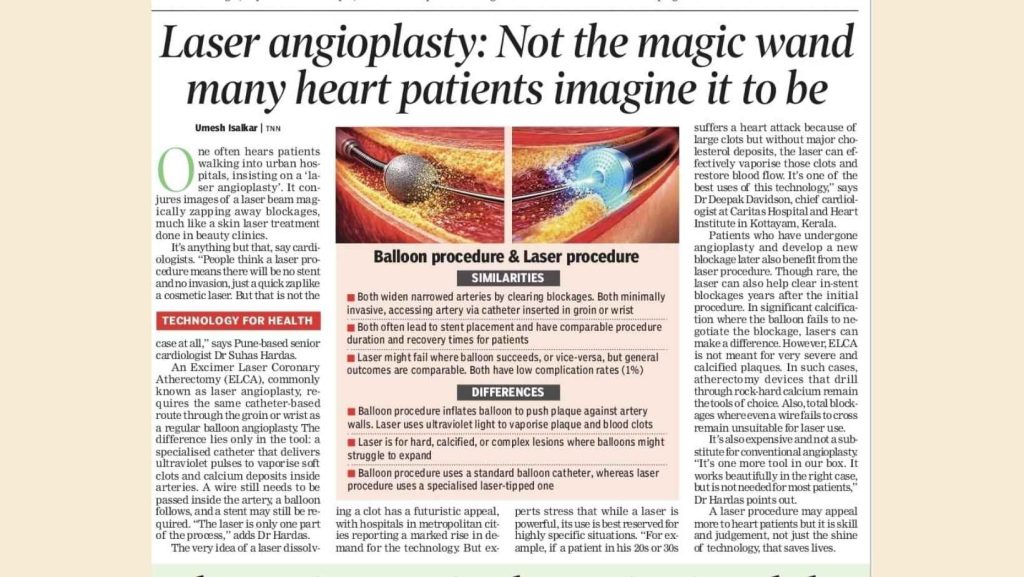Heart disease continues to be one of the most serious health challenges worldwide—and India is no exception. According to the World Health Organization, nearly 27% of all deaths in India are attributed to cardiovascular diseases, including heart attacks and strokes. The rising prevalence of hypertension, diabetes, and high cholesterol has made heart health a pressing public concern across both urban and rural regions.
While medical treatment and lifestyle changes remain the cornerstone of heart care, emerging research shows that certain foods can significantly support vascular health, reduce inflammation, and help prevent further damage to arteries.
Here, Dr. Suhas Hardas, one of the best cardiologists in Pune, shares expert insights on five heart-protective foods that may help reduce heart blockages and improve overall cardiovascular function.
Note: These foods support heart health but cannot reverse or remove established blockages. Always consult your cardiologist before making dietary changes, especially if you have heart disease or are on medication.
1. Beetroot – The Natural Blood Flow Enhancer
Beetroot is one of nature’s most potent sources of dietary nitrates, which the body converts into nitric oxide (NO)—a compound that helps dilate blood vessels, improve circulation, and reduce stress on artery walls. According to studies published by the National Institutes of Health (NIH), nitric oxide helps protect the inner lining of arteries (endothelium) and may slow the progression of vascular injury.
How Beetroot Helps
- Improves blood vessel dilation and flexibility.
- Reduces oxidative stress and inflammation.
- Enhances oxygen delivery to heart muscles.
- Supports lower blood pressure levels.
How to Include in Your Diet
- Morning smoothie: Blend raw beetroot with lemon, ginger, and greens for a detoxifying start.
- Roasted salad: Toss roasted beetroot with olive oil, herbs, and leafy greens.
- Juice: Fresh beet juice (without added sugar) a few times a week can be beneficial.
Beetroot’s vibrant color isn’t just beautiful—it’s a sign of its rich antioxidant content, particularly betalains, which play a role in reducing cellular inflammation.
2. Walnuts – Nature’s Omega-3 Treasure
Walnuts are a powerful plant-based source of alpha-linolenic acid (ALA), a type of omega-3 fatty acid that supports heart health. They also contain polyphenols, antioxidants, and vitamin E, all of which work together to reduce oxidative damage and support healthy cholesterol levels.
Research published in the NIH reveals that regular walnut intake improves endothelial function, which refers to how well your blood vessels expand and contract. It also helps prevent oxidation of LDL cholesterol—a key step in plaque buildup within arteries.
How Walnuts Help
- Reduce “bad” LDL cholesterol oxidation.
- Support flexibility of arteries.
- Lower inflammation and oxidative stress.
- Improve heart rhythm and vascular tone.
How to Include in Your Diet
- Morning routine: Eat 2–3 soaked walnuts before breakfast.
- Add-ons: Sprinkle chopped walnuts on salads, yoghurt, or oatmeal.
- Snack option: Pair with fruits for a quick and heart-healthy bite.
Walnuts’ nutty richness provides both taste and therapeutic benefits, making them one of the most recommended foods to reduce heart blockages naturally.
3. Microgreens of Cruciferous Vegetables – Tiny but Mighty
Cruciferous vegetables such as broccoli, kale, cabbage, and radish are known for their powerful detoxifying and anti-inflammatory compounds. When consumed as microgreens—the early sprouting stage—they become even more concentrated with nutrients like sulforaphane and isothiocyanates, which are known to activate cellular antioxidant defenses.
How Microgreens Help
- Reduce inflammation in blood vessels.
- Support detoxification pathways in the liver.
- Provide essential phytonutrients that combat oxidative stress.
- May slow the progression of arterial plaque buildup.
How to Include in Your Diet
- Add a handful to sandwiches, smoothies, or salads.
- Garnish soups and buddha bowls with fresh microgreens.
- Mix with olive oil and lemon for a light heart-protective topping.
Microgreens are easy to grow at home, ensuring a fresh and affordable way to add nutrient-dense greens to your daily meals.
4. Fatty Fish – Omega-3 for Vascular Protection
Fish such as salmon, mackerel, sardines, and trout are rich in EPA (eicosapentaenoic acid) and DHA (docosahexaenoic acid)—the long-chain omega-3s known to reduce triglycerides, stabilize plaque, and improve heart rhythm.
Several well-controlled clinical studies have shown that regular fish consumption or fish oil supplementation can slow the progression of atherosclerosis (arterial narrowing) and improve endothelial function.
How Fatty Fish Help
- Decrease triglyceride levels.
- Lower inflammation in blood vessels.
- Stabilize plaque and reduce the risk of rupture.
- Improve overall vascular flexibility and heart rhythm.
How to Include in Your Diet
- Include 2–3 servings of fatty fish per week.
- Grill, steam, or bake fish instead of frying.
- If vegetarian, discuss algae-based omega-3 supplements with your doctor.
Fatty fish are among the most evidence-backed foods to reduce heart blockages, offering both preventive and protective effects for cardiovascular health.
5. Dark Cocoa – Sweet Relief for Your Heart
Who knew that a bit of chocolate could actually be heart-friendly? Dark cocoa, particularly with a 70% or higher cacao content, is rich in flavanols—plant compounds that support nitric oxide production and improve blood vessel flexibility.
Some small human studies have shown that dark cocoa consumption improves endothelial function, reduces platelet stickiness, and enhances blood flow.
How Dark Cocoa Helps
- Boosts nitric oxide levels naturally.
- Improves circulation and reduces platelet clumping.
- Provides antioxidants that combat oxidative stress.
- Elevates mood—an often-overlooked factor in heart health!
How to Include in Your Diet
- Enjoy 10–15 g of 70% dark chocolate daily.
- Add unsweetened cocoa powder to smoothies or oatmeal.
- Use dark chocolate shavings in dressings or sauces for a twist.
Remember: moderation is key. Excess sugar or milk chocolate can offset the health benefits.
Complementary Lifestyle Habits for Heart Health
While a nutritious diet is essential, food alone cannot reverse major blockages. To protect and repair your heart effectively, combine these foods with comprehensive lifestyle measures, such as:
1. Regular Exercise
At least 30 minutes of brisk walking, cycling, or swimming 5 times a week improves blood circulation and cardiovascular endurance.
2. Stress Management
Meditation, yoga, and deep breathing exercises can lower stress hormones like cortisol, which otherwise increase blood pressure and inflammation.
3. Quality Sleep
Poor sleep quality disrupts metabolism and increases heart disease risk. Aim for 7–8 hours of restful sleep nightly.
4. Avoid Smoking & Limit Alcohol
Tobacco and excess alcohol severely damage blood vessels. Quitting smoking is one of the most powerful ways to protect your heart.
5. Routine Health Check-ups
Regular monitoring of blood pressure, lipid profile, and blood sugar levels helps detect issues early.
6. Stay Socially Connected
Strong social connections and emotional well-being also play a protective role in heart health, lowering the risk of depression-linked cardiac events.
Practical Tips for Incorporating Heart-Healthy Foods
- Start small: Introduce one new food every few days to observe tolerance and digestive response.
- Watch medication interactions: If you’re on blood thinners, high vitamin K greens may require dosage monitoring.
- Limit sugar and salt: Overuse of these can nullify dietary benefits.
- Stay consistent: Dietary improvements take time—consistency is more valuable than perfection.
- Consult your cardiologist: Always discuss dietary changes if you’re on medication or under treatment.
Disclaimer
This article is intended for informational purposes only and does not substitute professional medical advice, diagnosis, or treatment. Always consult a qualified healthcare provider—preferably a cardiologist like Dr. Suhas Hardas—before making changes to your diet or medication.
About Dr. Suhas Hardas
Dr. Suhas Hardas is a renowned cardiologist in Pune, widely recognized for his expertise in interventional cardiology, preventive heart care, and lifestyle-based cardiac rehabilitation. With years of clinical experience and patient-centered care, Dr. Hardas emphasizes a holistic approach that integrates medical precision with nutrition, exercise, and emotional well-being.
If you’re seeking personalized advice on food to reduce heart blockages, manage cholesterol, or optimize your cardiovascular health, Dr. Suhas Hardas provides comprehensive consultations to guide you toward a healthier heart.
Final Thoughts
The journey to a healthier heart isn’t about radical diets—it’s about sustainable, mindful choices. Incorporating beetroot, walnuts, microgreens, fatty fish, and dark cocoa into your daily meals can significantly support vascular function and reduce the risks of further blockages.
When combined with a balanced lifestyle—regular exercise, stress control, and proper medical supervision—these foods form a powerful defense against heart disease.
Remember, your heart deserves consistent care and nourishment. Start today with small steps, and let every meal be a step toward stronger arteries, improved circulation, and a longer, healthier life.



